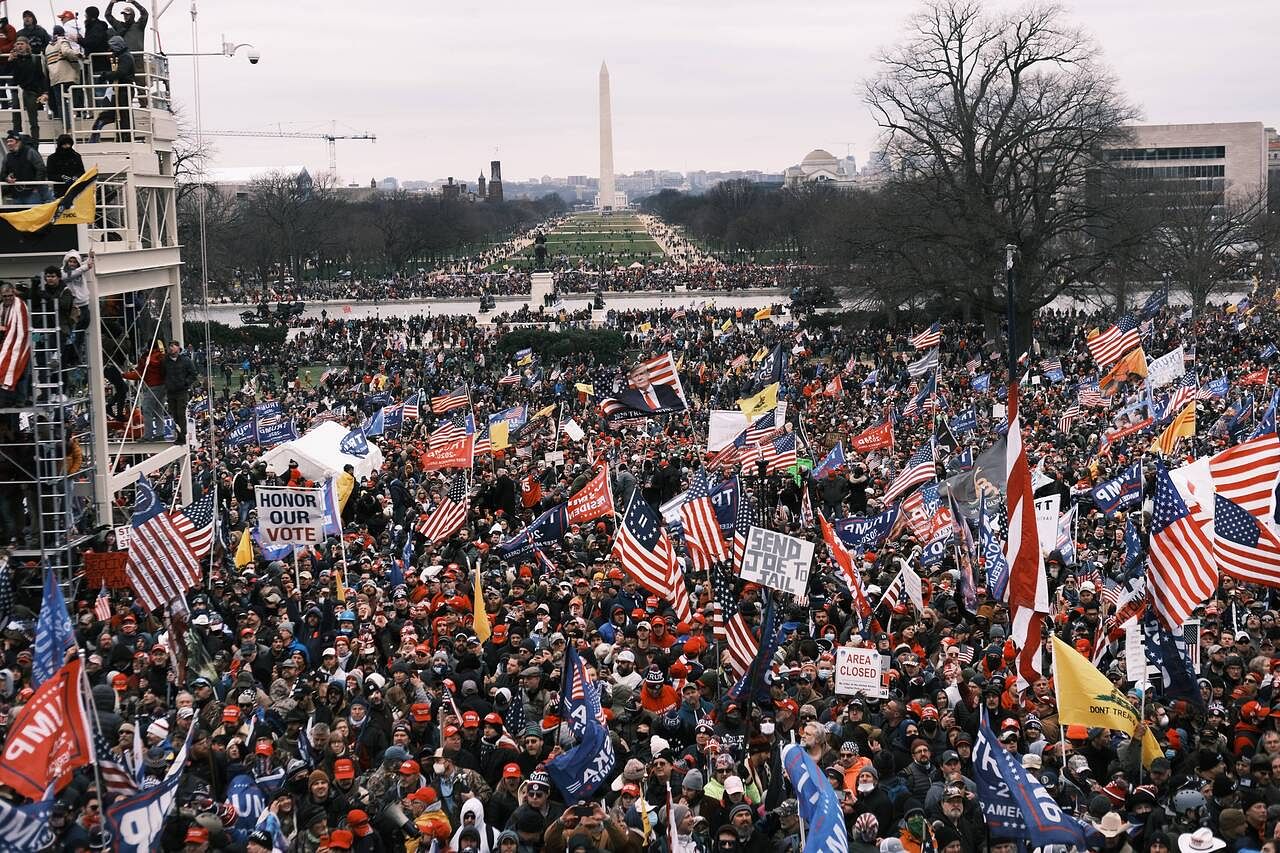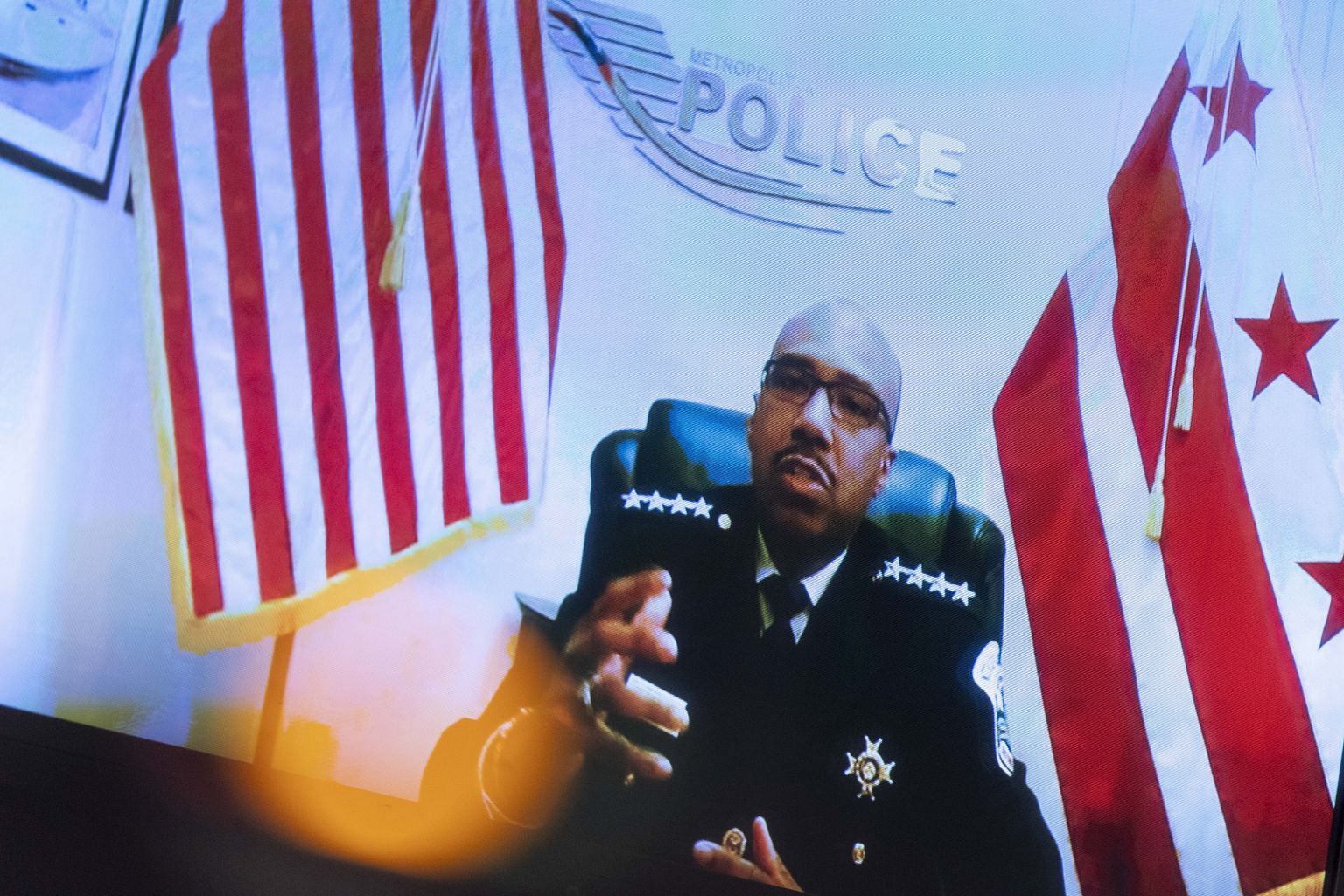Officials at hearing point to security, intel failures in US Capitol riot
Sign up now: Get ST's newsletters delivered to your inbox

Supporters of US President Donald Trump protest in front of the Capitol in Washington on Jan 6, 2021.
PHOTO: AFP
WASHINGTON (AFP) - The deadly US Capitol riot on Jan 6 exposed devastating security and intelligence weaknesses, with military authorities reacting too slowly to calls for National Guard backup against an overwhelming mob, security officials told Congress on Tuesday (Feb 23).
In the first Senate hearing on the security failings, featuring US Capitol Police and Washington police chiefs and congressional sergeants at arms, the officials acknowledged they were blindsided by lack of intelligence and response coordination to the worst domestic insurrection since the Civil War.
In compelling testimony they painted a picture of officers badly outnumbered by armed and coordinated insurgents.
They pointed to a series of intelligence shortcomings about the threat level including assessments of "remote" and "improbable" chances of major violence on Jan 6, even though extremist groups like the Proud Boys made clear they were coming to Washington that day to stir up trouble.
"These criminals came prepared for war," said the US Capitol Police's then-chief Steven Sund.
Yet "no entity, including the FBI, provided any intelligence indicating that there would be a coordinated violent attack on the United States Capitol by thousands of well-equipped armed insurrectionists," a situation that left his officers "significantly outnumbered" against a violent mob.
Sund resigned his post in the wake of the riot, which left five people dead including one police officer and four others. Two other police officers died by suicide shortly afterwards.
House sergeant-at-arms Paul Irving and Senate sergeant-at-arms Michael Stenger also stepped down.
At a rare joint hearing of the Senate's homeland security and rules committees, Irving testified that "the intelligence was not that there would be a coordinated assault on the Capitol, nor was that contemplated in any of the inter-agency discussions that I attended in the days before the attack."
'Worst of the worst'
The unprecedented breach of the citadel of American democracy occurred on Jan 6 after then-president Donald Trump whipped up a crowd of his supporters, urging them to march on Congress and "fight like hell."
The riot, fuelled by Trump's repeated false claims that the election was rigged, appeared aimed at blocking the certification of Joe Biden as winner of the Nov 3 vote.
Washington's acting police chief Robert Contee said his officers were literally "fighting for their lives" on Capitol Hill.
But he was "stunned at the response" by the Department of the Army, which he said was "reluctant" to send National Guard troops to protect the Capitol.

Washington’s acting police chief Robert Contee (above, during the hearing) said his officers were literally “fighting for their lives” on Capitol Hill.
PHOTO: EPA-EFE
Officials participating in the hearing agreed that a thorough review of intelligence sharing operations and internal processes is needed to determine reforms to be made in order to avoid any repeat of Jan 6.
Senate Homeland Security Committee chairman Gary Peters, a Democrat, described Jan 6 as "one of our nation's darkest days," and said the security problems at the Capitol marked "a systemic and leadership failure" that must be addressed.
Lawmakers also heard a gripping account of the unrest by Capitol Police Captain Carneysha Mendoza, including how she helped keep a group of rioters at bay as they forced their way into the building.
"This was by far the worst of the worst," Mendoza said, noting how rioters deployed "military grade CS gas," commonly known as tear gas, in the Rotunda as they fought with police.
"We could have had 10 times the amount of people working with us, and I still believe the battle would have been just as devastating," she said.


